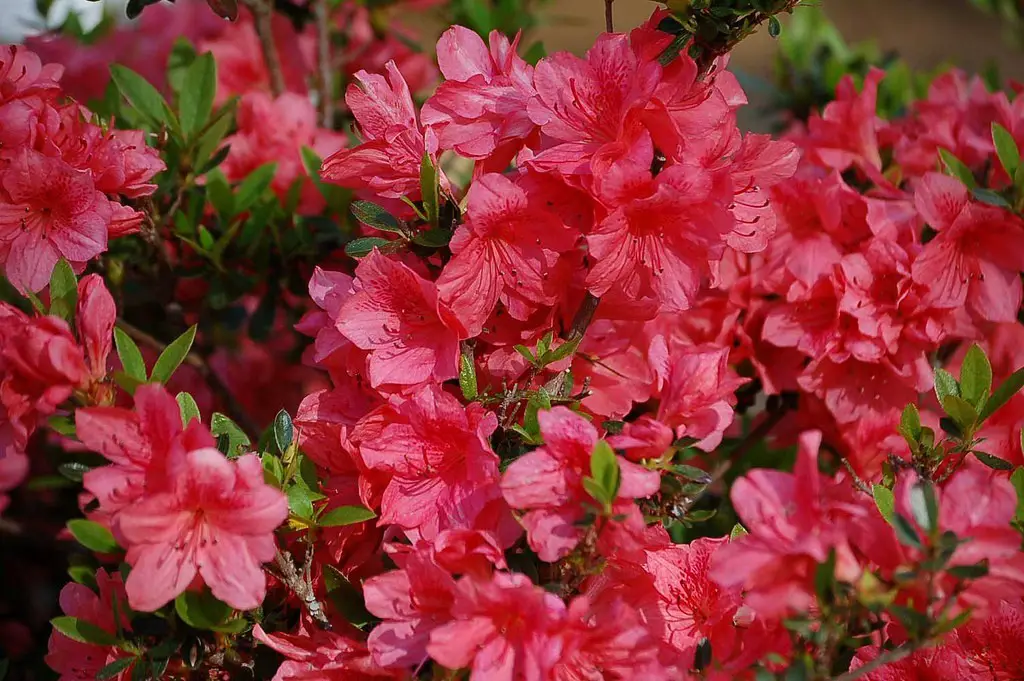Your Too much nitrogen in plants images are available in this site. Too much nitrogen in plants are a topic that is being searched for and liked by netizens today. You can Download the Too much nitrogen in plants files here. Download all royalty-free images.
If you’re searching for too much nitrogen in plants pictures information connected with to the too much nitrogen in plants interest, you have visit the right site. Our site frequently provides you with suggestions for seeing the highest quality video and image content, please kindly surf and locate more enlightening video articles and images that fit your interests.
Too Much Nitrogen In Plants. There are a couple of different ways this can happen. It can also cause excess nitrate to leach into groundwater. Too much nitrogen in flowering plants encourages the plant to produce lots of leaves at the expense of flowers. When you have too much nitrogen in soil, your plants may look lush and green, but their ability to fruit and flower will be greatly reduced.
Nitrogen Toxicity? 420 Magazine From 420magazine.com
They continue giving their plants the same fertilizer they did during. Too much nitrogen causes plants to become spindly with frail stems. However, when too much nitrogen is present, what tends to result is an explosion of foliar growth, but at the expense of flower formation, fruit set, and root growth. When plants receive too much nitrogen (n), they become more attractive to insects and diseases. But as with everything, balance is key: However, it does not mean you neglect your plants completely.
How much nitrogen do marijuana plants need?
Toxicity in plants is usually the result of giving too much nitrogen, despite the large quantity required. Nitrogen toxicity can occur through a number of mechanisms but is usually a result of the application of excessive amounts of fertiliser. Many growers are not prepared for this change. Too much nitrogen affects plant quality because it negatively impacts photosynthesis. Abnormally dark green foliage and leaves. Toxicity in plants is usually the result of giving too much nitrogen, despite the large quantity required.
 Source: epicgardening.com
Source: epicgardening.com
However, it does not mean you neglect your plants completely. Additionally, root growth is stunted, which leads to even less plant support. While you can take steps towards reducing nitrogen in garden soil, it�s best to avoid adding too much nitrogen to the soil in the first place. The other way is a. If you know you have too much nitrogen in your soil, you can try planting vegetables that use more nitrogen, like squash and cabbage, in that area and plant your tomatoes, or other vegetables.
 Source: dudegrows.com
Source: dudegrows.com
When plants receive too much nitrogen (n), they become more attractive to insects and diseases. All plants need nitrogen for healthy growth. Additionally, root growth is stunted, which leads to even less plant support. If you know you have too much nitrogen in your soil, you can try planting vegetables that use more nitrogen, like squash and cabbage, in that area and plant your tomatoes, or other vegetables. Too much manure can kill your plants.
Source: forum.grasscity.com
But too much nitrogen can be toxic to plants, and can also harm our environment. Your plant needs a lot of nitrogen in the vegetative stage, and it’s generally hard to give too much as long as you’re not going completely overboard with nutrients. For example, tomato plants need increased nitrogen once they begin to flower and fruit. The leaves may start to yellow or the leaf tips may show signs of “burn” by turning crunchy and brown. They continue giving their plants the same fertilizer they did during.
 Source: autoflower.net
Source: autoflower.net
Eventually, the plant dies because it can no longer support itself. Plants absorb nitrogen from the soil in the form of amino acids, nitrite, or ammonium ions through their roots. If you know you have too much nitrogen in your soil, you can try planting vegetables that use more nitrogen, like squash and cabbage, in that area and plant your tomatoes, or other vegetables. Your plant needs a lot of nitrogen in the vegetative stage, and it’s generally hard to give too much as long as you’re not going completely overboard with nutrients. Too much nitrogen and phosphorus in the water causes algae to grow faster than ecosystems can handle.excess nitrogen in the atmosphere can produce pollutants such as ammonia and ozone, which can impair our ability to breathe, limit visibility and alter plant growth.
 Source: youtube.com
Source: youtube.com
Does it pose a risk to your plants? Nitrogen toxicity can occur through a number of mechanisms but is usually a result of the application of excessive amounts of fertiliser. Use organic or chemical fertilizers with nitrogen carefully. Nitrogen is also a component of chlorophyll, so it is central to basic photosynthesis, and therefore needed by all. The effects of too much nitrogen in plants excess foliage growth.
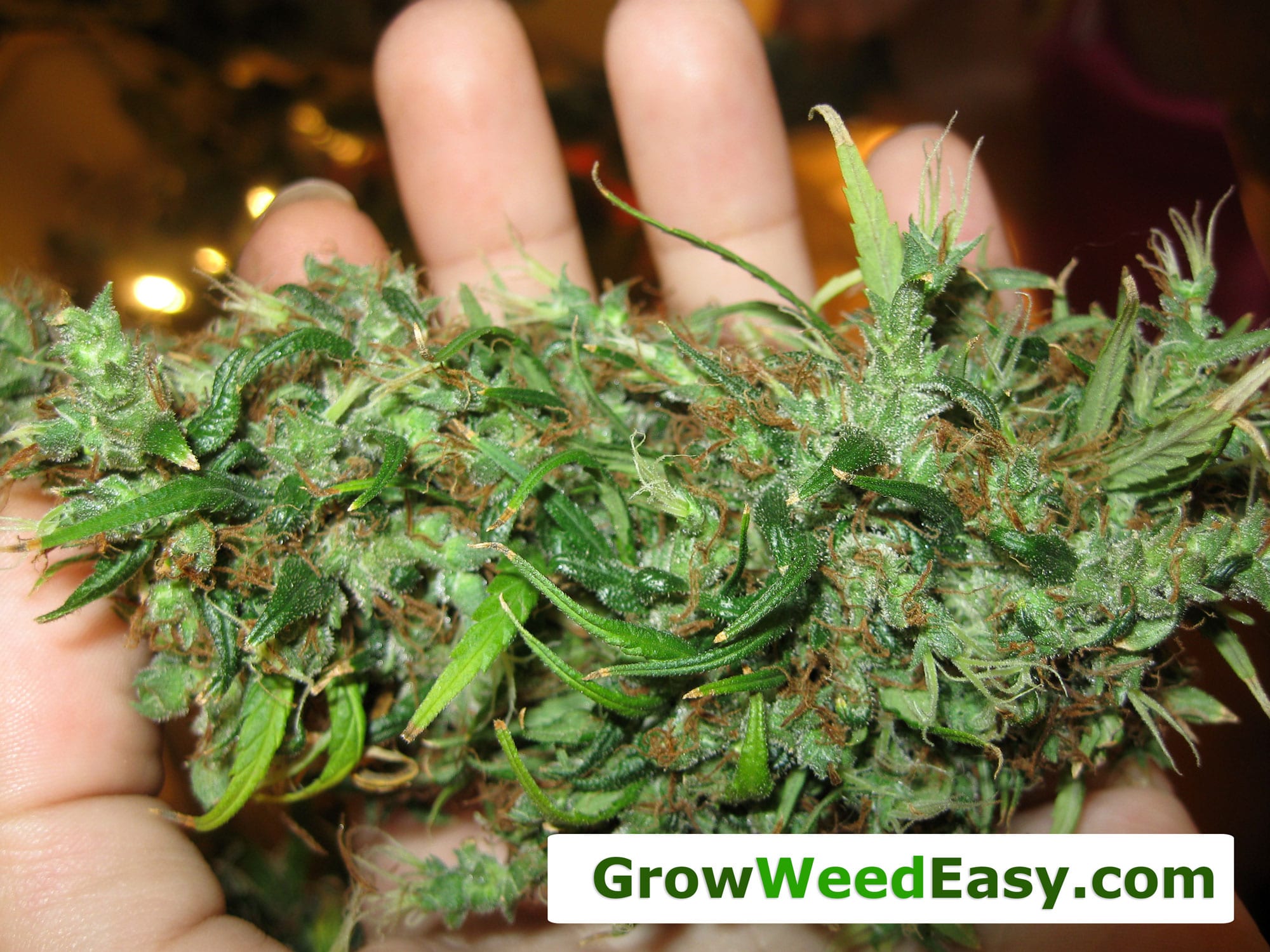 Source: growweedeasy.com
Source: growweedeasy.com
If you know you have too much nitrogen in your soil, you can try planting vegetables that use more nitrogen, like squash and cabbage, in that area and plant your tomatoes, or other vegetables. Additionally, root growth is stunted, which leads to even less plant support. Signs of nitrogen toxicity extremely dark green leaves. Too much nitrogen in flowering plants encourages the plant to produce lots of leaves at the expense of flowers. A lack of nitrogen might result in plants that were stunted and yellowy, with withered growth and overall poor health.
 Source: researchgate.net
Source: researchgate.net
Nitrogen toxicity can occur through a number of mechanisms but is usually a result of the application of excessive amounts of fertiliser. It’s assumed that as nitrogen is one of the building blocks of quality cannabis, more is better. The other way is a. How do you know if your soil has too much nitrogen? While you can take steps towards reducing nitrogen in garden soil, it�s best to avoid adding too much nitrogen to the soil in the first place.
Source: forum.grasscity.com
Nitrogen is also a component of chlorophyll, so it is central to basic photosynthesis, and therefore needed by all. A lack of nitrogen might result in plants that were stunted and yellowy, with withered growth and overall poor health. Toxicity in plants is usually the result of giving too much nitrogen, despite the large quantity required. This results in dark, shiny, clawing leaves. Plants require nitrogen during the vegetative stage of their growth but too much of it stunts the plant.
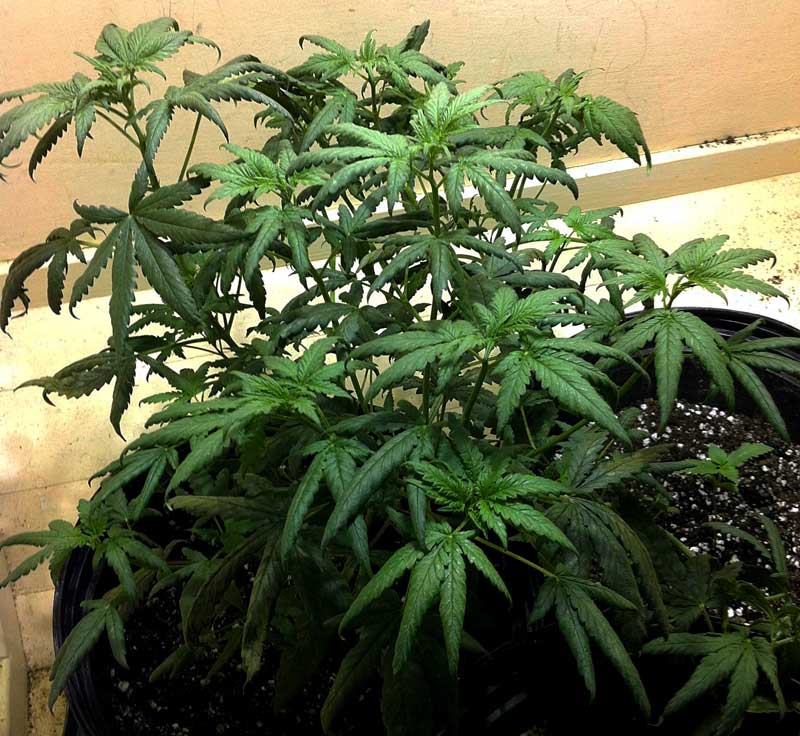 Source: growweedeasy.com
Source: growweedeasy.com
Too much nitrogen is just as dangerous as its essentiality. Too much nitrogen present in the soil can be just as harmful to plants as too little. Nitrogen toxicity can occur through a number of mechanisms but is usually a result of the application of excessive amounts of fertiliser. This study gives a brief idea of the acute reasons for nitrogen toxicity in plants. Abnormally dark green foliage and leaves.
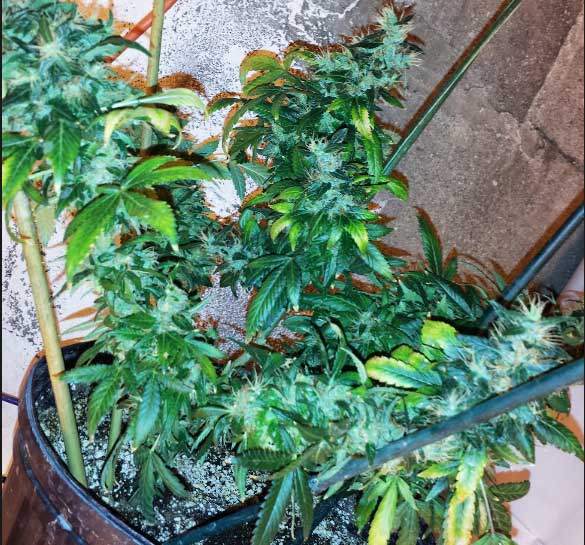 Source: growweedeasy.com
Source: growweedeasy.com
Too much nitrogen causes plants to become spindly with frail stems. But as with everything, balance is key: It’s assumed that as nitrogen is one of the building blocks of quality cannabis, more is better. You can get some fertilizers and supplements that are balanced with the right levels of nitrogen. Excess nitrogen in cannabis plants will prevent the correct formation of buds, reduce both yields and potency and can cause inferior buds.
Source: thcfarmer.com
However, when too much nitrogen is present, what tends to result is an explosion of foliar growth, but at the expense of flower formation, fruit set, and root growth. When you have too much nitrogen in soil, your plants may look lush and green, but their ability to fruit and flower will be greatly reduced. Nitrogen is also a component of chlorophyll, so it is central to basic photosynthesis, and therefore needed by all. How do you know if your soil has too much nitrogen? Too much nitrogen during the flowering phase is detrimental.
 Source: 420magazine.com
Source: 420magazine.com
The answer is yes, it does cause harm, but nothing that can’t be fixed. They continue giving their plants the same fertilizer they did during. In the vegetative phase, plants need a lot of nitrogen. For example, tomato plants need increased nitrogen once they begin to flower and fruit. Too much nitrogen and phosphorus in the water causes algae to grow faster than ecosystems can handle.excess nitrogen in the atmosphere can produce pollutants such as ammonia and ozone, which can impair our ability to breathe, limit visibility and alter plant growth.
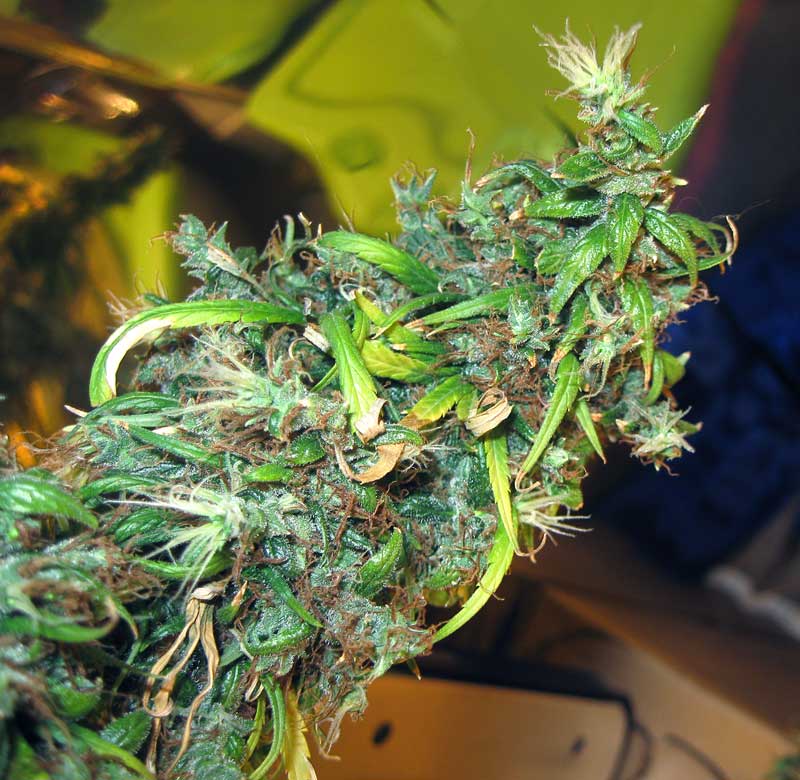 Source: growweedeasy.com
Source: growweedeasy.com
The answer is yes, it does cause harm, but nothing that can’t be fixed. One of the most common mistakes among newcomers to cannabis cultivation is the provision of too much nitrogen. Many new growers accidentally give their plants give too much nitrogen, especially in the flowering stage. Too much nitrogen present in the soil can be just as harmful to plants as too little. Spots on leaves often resulting in death.
 Source: reddit.com
Source: reddit.com
Too much nitrogen present in the soil can be just as harmful to plants as too little. Too much nitrogen during the flowering phase is detrimental. Toxicity in plants is usually the result of giving too much nitrogen, despite the large quantity required. Synthetic fertilizers contain high levels of salt, which draw water away from the plant and cause dehydration. Many growers are not prepared for this change.
 Source: reddit.com
Source: reddit.com
Your plant needs a lot of nitrogen in the vegetative stage, and it’s generally hard to give too much as long as you’re not going completely overboard with nutrients. As the foliage continues to grow abundantly, the weak stems become less able to support the plant. Toxicity symptoms may be a result of plants having uptaken too much nitrogen in any form or they may result from excess levels of ammonium which is a nitrogen containing ion (nh 4 +). They continue giving their plants the same fertilizer they did during. This study gives a brief idea of the acute reasons for nitrogen toxicity in plants.
Source: 420magazine.com
The most common symptoms of nitrogen toxicity in plants include: Spots on leaves often resulting in death. Many growers are not prepared for this change. Toxicity symptoms may be a result of plants having uptaken too much nitrogen in any form or they may result from excess levels of ammonium which is a nitrogen containing ion (nh 4 +). Eventually, the plant dies because it can no longer support itself.
Source: forum.grasscity.com
Abnormally dark green foliage and leaves. It can also cause excess nitrate to leach into groundwater. If you know you have too much nitrogen in your soil, you can try planting vegetables that use more nitrogen, like squash and cabbage, in that area and plant your tomatoes, or other vegetables. Use organic or chemical fertilizers with nitrogen carefully. Too much nitrogen affects plant quality because it negatively impacts photosynthesis.
Source: thcfarmer.com
As the foliage continues to grow abundantly, the weak stems become less able to support the plant. Plants require nitrogen during the vegetative stage of their growth but too much of it stunts the plant. This study gives a brief idea of the acute reasons for nitrogen toxicity in plants. In severe cases of fertilizer burn, the plant may die completely. Nitrogen toxicity can occur through a number of mechanisms but is usually a result of the application of excessive amounts of fertiliser.
This site is an open community for users to do sharing their favorite wallpapers on the internet, all images or pictures in this website are for personal wallpaper use only, it is stricly prohibited to use this wallpaper for commercial purposes, if you are the author and find this image is shared without your permission, please kindly raise a DMCA report to Us.
If you find this site value, please support us by sharing this posts to your favorite social media accounts like Facebook, Instagram and so on or you can also save this blog page with the title too much nitrogen in plants by using Ctrl + D for devices a laptop with a Windows operating system or Command + D for laptops with an Apple operating system. If you use a smartphone, you can also use the drawer menu of the browser you are using. Whether it’s a Windows, Mac, iOS or Android operating system, you will still be able to bookmark this website.





